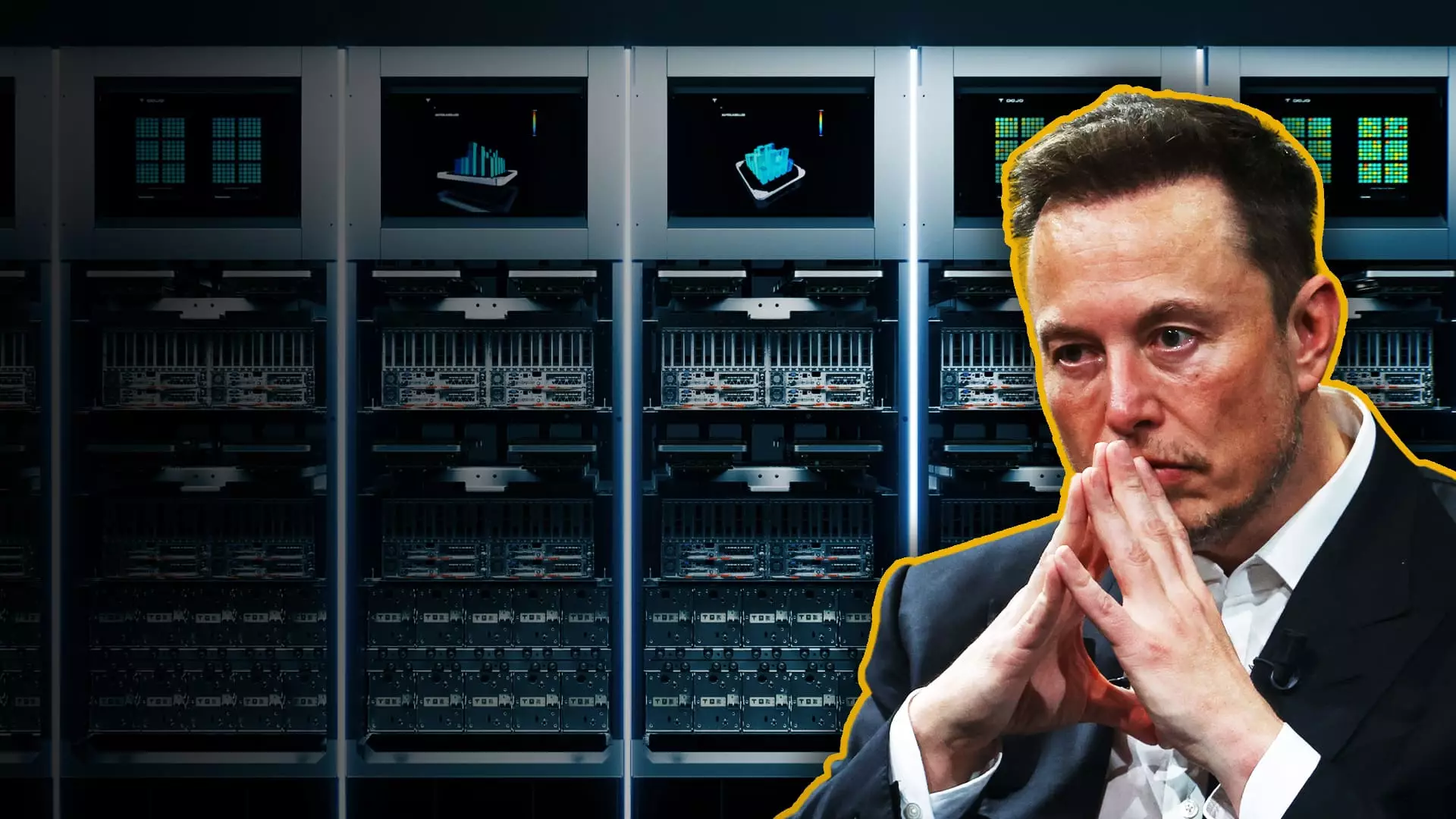Elon Musk, the visionary behind Tesla and the newly-formed artificial intelligence (AI) startup xAI, is reshaping the intersection of technology and transportation. His categorical assertion that Tesla should be perceived as an AI and robotics entity rather than merely a car manufacturer marks a pivotal shift in the narrative surrounding the company. The heart of this ambition lies in the development of powerful supercomputers—tools that Musk believes will be instrumental in harnessing artificial intelligence to elevate Tesla’s capabilities and performance.
Musk’s ambitious plans include the custom-built supercomputer called Dojo, which Tesla is developing with a significant investment of $500 million in Buffalo, New York. This sophisticated computational machine is designed to process vast amounts of data generated by the millions of Tesla vehicles on the road. It will enable the training of artificial intelligence models that leverage the extensive video feeds and data captured by Tesla’s fleet. The end goal is to enhance Tesla’s Autopilot features and the much-anticipated Full Self-Driving (FSD) system, which currently relies heavily on extensive driver oversight.
As part of this ambitious endeavor, Tesla is not only investing heavily in Dojo but is also constructing an additional supercomputer cluster, named Cortex, at its Austin, Texas headquarters. These technological advancements are made possible due to the extensive data captured from Tesla vehicles, which are equipped with multiple cameras and collect significant amounts of visual and operational data every year. This immense training set offers a massive opportunity for Tesla to fine-tune its autonomous vehicle technologies.
The financial model for FSD features subscriptions priced at $99 a month, which currently offer functionalities such as lane changes and automatic parking. Despite these advancements, Musk’s full vision of autonomy remains unfulfilled, and regulatory scrutiny increases as critics argue that Tesla has exaggerated the capabilities of its Autopilot and FSD systems. This scrutiny could lead to challenges, especially in light of Tesla’s lofty market valuation, which hinges on the successful launch of autonomous taxi services.
Competition in the Autonomous Landscape
Tesla’s race toward full autonomy faces stiff competition from other industry leaders. Companies like Waymo, Cruise, and Zoox are already operational in the field of fully autonomous taxis, and they pose significant challenges to Tesla’s aspirations. With competitors leading the charge in the autonomous vehicle market, Tesla’s ambitions to be at the forefront of this technology face considerable obstacles. As traditional automakers evolve their strategies and technology, Tesla must navigate a landscape of increasing competition if it hopes to maintain its edge.
To bolster its efforts and reclaim innovative leadership, Tesla is counting on Dojo to propel its AI systems forward. Future announcements regarding Tesla’s robotaxi endeavors show promise, with a highly anticipated event scheduled for early October, reinforcing Musk’s commitment to the growth of autonomous transportation.
In addition to enhancing vehicle autonomy, the capabilities of Dojo extend to the development of Tesla’s humanoid robot, Optimus. This robot is expected to enter production by next year and could reshape manufacturing processes within Tesla by streamlining various factory functions. The ambitious nature of these projects signifies Musk’s broader vision for integrating AI into numerous domains of Tesla’s operations.
Musk’s plans do not just end with Tesla. His AI company, xAI, is also expected to benefit from the ongoing development of supercomputers. Launched in 2023, xAI aims to provide alternatives to existing AI tools via large language models and innovations like the chatbot Grok. As part of this initiative, xAI is building another supercomputer, Colossus, in Memphis, Tennessee. This initiative not only emphasizes Musk’s commitment to AI but also highlights his intent to rival tech giants such as OpenAI, Microsoft, and Google.
Elon Musk’s ambitious vision of merging AI with automotive technology signifies a new era of innovation in transportation and beyond. With grand plans for supercomputers like Dojo and a commitment to advancing Tesla’s technologies, Musk aims to reshape expectations surrounding autonomous vehicles and AI applications. However, the road ahead is fraught with competition and regulatory challenges. As Musk seeks full autonomy for his fleet, the deployment of AI-driven innovations is set to challenge the very fabric of traditional automaking, establishing a complex interplay between technology, regulation, and competition in the fast-evolving world of AI.

